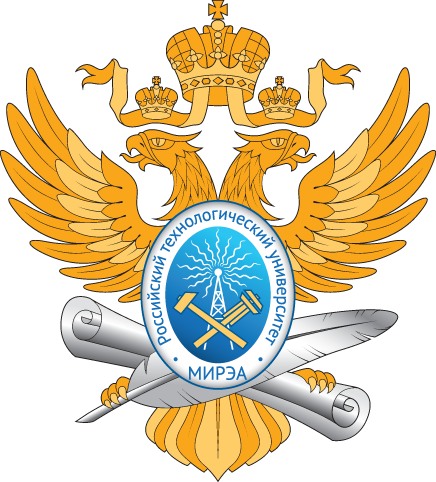09.04.04 Software engineering

The program provides in-depth training of professionals in industrial software production technologies for various computer systems. It focuses on methods and algorithms of data processing in IT computer systems; parallel, high-performance and distributed IT systems; industrial software testing processes; programming languages and their translators; network protocols and network services; operating systems. The program makes a special emphasis on an interdisciplinary approach to the analysis, design and development of information technology systems.
Level of education:
Master’s degree
Form of training:
Full-time (daytime)
Venue of training:
Moscow
Entrance exams:
— Higher mathematics
Programs, specializations:
Information system architecture

Students receive theoretical instruction and practical training in the field of analysis, selection and implementation of architectural solutions in designing software for various IT systems in the context of industrial production.
Studies takes place in computer classes equipped with state-of-the-art hardware, software and multimedia equipment. Students explore the best domestic and foreign practices of industrial software production, as well as of architectural solution analysis, selection and implementation.
Studies takes place in computer classes equipped with state-of-the-art hardware, software and multimedia equipment. Students explore the best domestic and foreign practices of industrial software production, as well as of architectural solution analysis, selection and implementation.
Alumni can be employed as
- chief IT system developer
- software engineering specialist
- software project manager
- software designer
- systems architect
- systems analyst
Program subjects
- • Methods of software development organization
- • Information system development and design software tools
- • Network information system management
- • Software interface design and development
- • Control systems for relational and non-relational databases
- • Design and development of information resource management systems
- • Database integration and migration
- • Information technology infrastructure library
- • Information management in software development
- • Design of information systems architecture
Instrumental and Applied Software Department
Enterprise resource and relationship management information systems (ERP II)

Alumni can be employed as
- 1C ERP implementation project manager
- SAP ERP implementation project manager
- chief ERP officer
Program subjects
- Architecture of enterprise resource and relationship management systems
- Sourcing of data for enterprise resource and relationship management systems
- Synchronized enterprise resource planning systems
- Management of information technology infrastructure and architecture
- Design of enterprise resource and relationship management systems
- Data warehouses of enterprise resource and relationship management systems
- Lifecycle management of enterprise resource and relationship management systems
- Secure functioning of enterprise resource and relationship management systems
- Documenting and managing software versions
Corporate Information Systems Department
System engineering

Students receive theoretical instruction and practical training in standardizing software and system engineering, creating and developing complex, multi-version, replicable and reliable high-quality software tools and databases on the basis of an interdisciplinary approach. The laboratories are equipped with state-of-the-art computers along with network, multimedia and office equipment to support the learning process, research projects and one-off developments. Students are provided with opportunities for independent work, including software development and implementation, network and system administration.
Alumni can be employed as
- IT project manager
- product owner
- software architect
- chief information officer
Program subjects
- Information technology risk management
- Computing system verification and validation techniques
- Techniques to form an integrated cross-sectoral and international information space
- Information technology systems engineering
- Computer system architecture
- Methods to validate principal requirements for computing systems
- Design of integrated information platforms
- Designing of cloud and distributed platforms and services
- National and international software and systems engineering standards
Department of Mathematical Support and Standardization of Information Technologies
- Educational Activity
-
Institutes
- Institute of Information Technologies
-
Institute of Artificial Intelligence
- About the Institute
- Institute Administration
- History of the Institute
-
Training programs
- Bachelor's Degree Programs
-
Master's Degree Programs
- 01.04.02 Applied mathematics and information science
- 09.04.01. Informatics and computer engineering
- 12.04.04 Biotechnical systems and technologies
- 15.04.04 Automation of technological processes and production
- 15.04.06 Mechatronics and robotics
- 27.04.03 System analysis and management
- 27.04.04 Engineering system control
- Infrastructure
- Alumni
- Contacts
- Institute for Cybersecurity and Digital Technologies
-
Institute for Advanced Technologies and Industrial Programming
- About the Institute
- Institute Administration
- History of the Institute
-
Training programs
-
Bachelor's Degree Programs
- 09.03.02 Information systems and technologies
- 11.03.04 Electronics and nanoelectronics
- 12.03.05 Laser technology and laser techniques
- 15.03.01 Mechanical engineering
- 22.03.01 Materials science and technology
- 27.03.01 Standardization and metrology
- 28.03.01 Nanotechnology and microsystems engineering
- 29.03.04 Decorative material working techniques
- 54.03.01 Graphic design
-
Master's Degree Programs
- 09.04.02. Information systems and technologies
- 11.04.04 Electronics and nanoelectronics
- 12.04.02 Optical engineering
- 15.04.01 Mechanical engineering
- 22.04.01 Materials science and technology
- 27.04.01 Standardization and metrology
- 29.04.04 Decorative material working techniques
- 54.04.01 Graphic design
-
Bachelor's Degree Programs
- Infrastructure
- Alumni
- Contacts
- Institute of Radio Electronics and Informatics
- Institute of Management Technologies
- Lomonosov Institute of Fine Chemical Technologies
- Institute of International Education
-
Mega-Laboratories
- Motion Capture Laboratory
- Immersive Technologies Laboratory
- Laboratory for the Development and Transfer of Microfluidic Technologies (DTMT)
- Cell Technologies Megalaboratory operating on the basis of the Department of Chemistry and Technology of Biologically Active Compounds, Medical and Organic Chemistry named after N.A. Preobrazhensky
- General Biotechnology Megalaboratory
- Industry 4.0: Digital Robotized Production center
- Laboratory of Intelligent Autonomous and Multi-Agent Robotic Systems
- Research and Educational Center for Biosynthesis, Isolation and Purification of Monoclonal Antibodies (Generium)
- Rare and Precious Metals Research and Technological Center operating on the basis of the Department of Chemistry and Technology of Rare Elements named after K.A. Bolshakov
- Laboratory of Analytic, Modeling, Design and Digital Prototyping Technologies
- Import Substitution of Information Technologies Educational and scientific testing complex
- Smart Production Systems Educational and Scientific Center
- Elastomers. Thermoplastics. Technologies Educational and Research Center operating on the basis of the Department of Chemistry and Technology of Elastomer Processing named after F.F. Koshelev
- Catalytic and Mass Exchange Processes center
- Center of Innovative Technologies in Microelectronics
- Centre for Additive Polymer Technologies
- Center for Cybersports Robotics
- Mobile Robotics University Laboratory
- Radio electronic Technologies Megalaboratory
- Situation center
- Scientific and Educational Center for Medical Radiology and Dosimetry
- Laboratory of Geographic Information Systems and Technologies
- Educational and Research Center for Space Monitoring ("CosMoCenter")
- Techno-coworking
- Bachelor's Degree Programs
- Master's Degree Programs
- Additional Education Programs
- Physical Education and Sports
© 2025 MIREA - Russian Technological University
